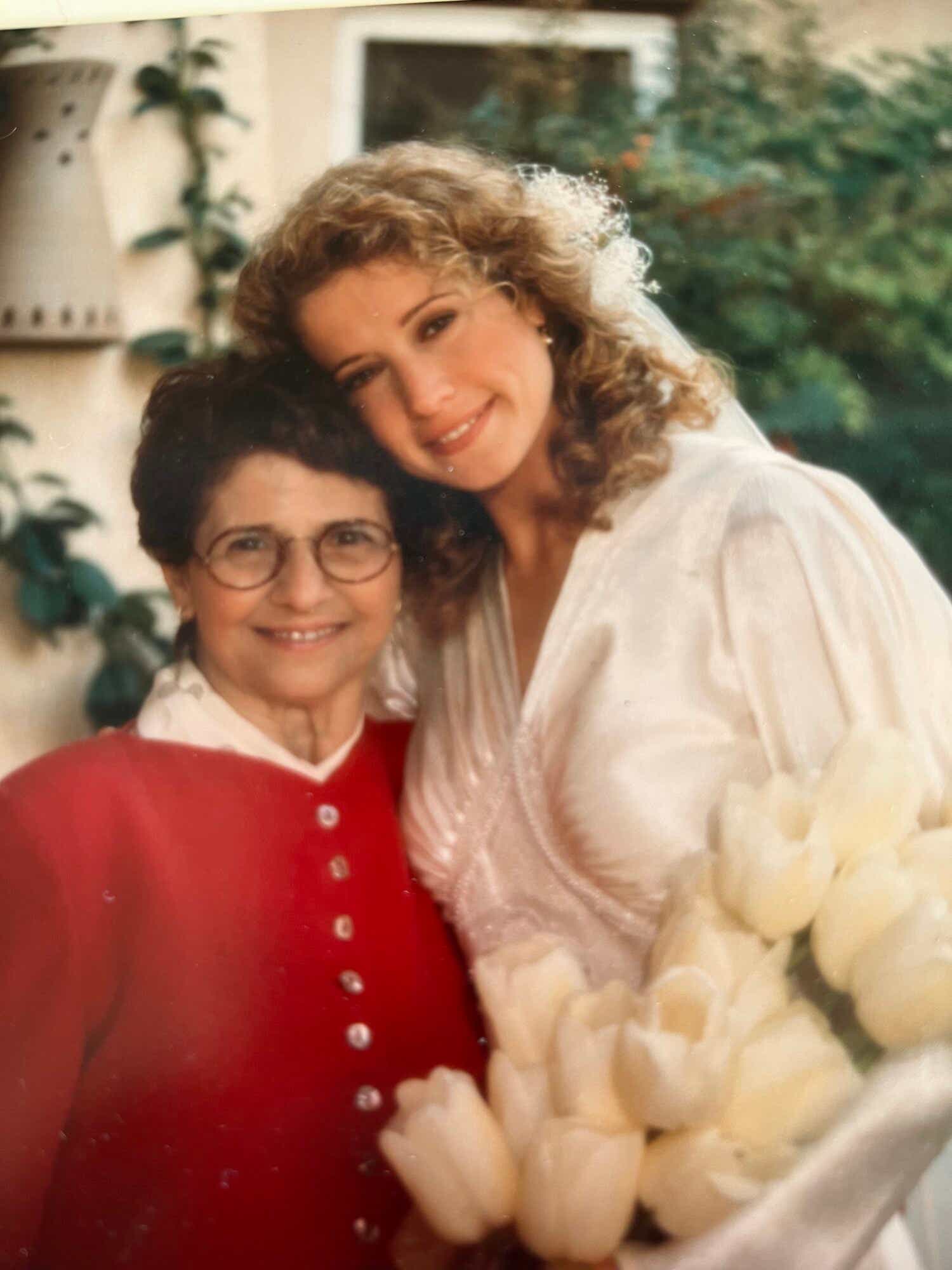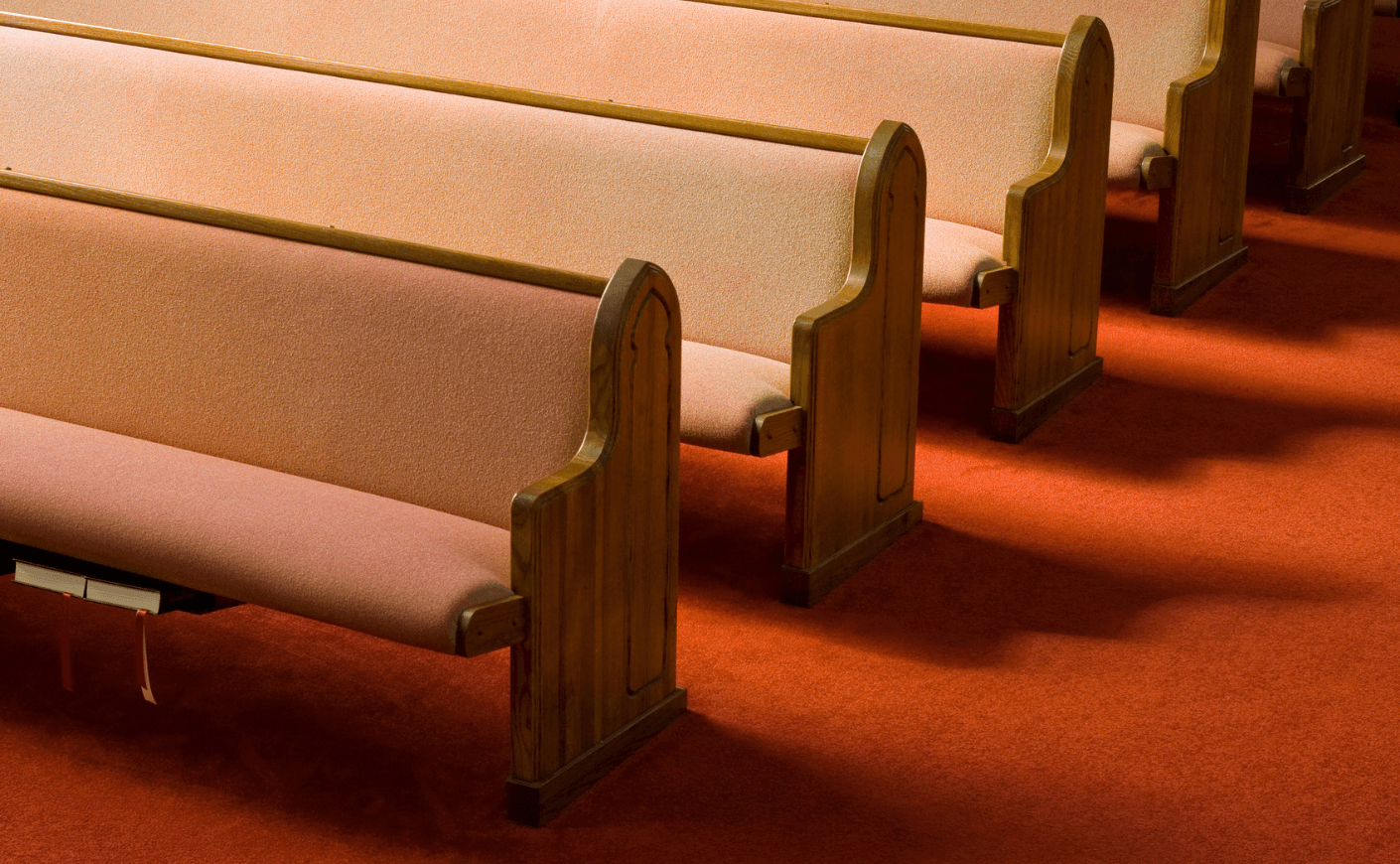I couldn’t help feeling that I had betrayed her.
An image on the news and in social media haunts me. A woman is being dragged by a fistful of wild, frizzy hair from a car by a raving terrorist and shoved into another vehicle. I can only see her from behind, but her bare feet are cut and bloodied and her hands are bound. The word “inhumanity” is too vague for this violence — for this sorrow I have stuck in my throat, for the throbbing in my gut, for the rage in my head. I never imagined that such barbarism could happen in today’s world. This woman has the same hair as me and is wearing what I wear: She could easily be me or you.
In times like these, I am glad my mother isn’t alive to witness such things. But my ludicrous reasoning that death somehow protects her — as if she never saw horror or experienced tragedy in her own life — doesn’t prevent me from knowing exactly what she would say: “How can there be a God that turns his back on such suffering? Where was God when all of these horrors were being committed?” It’s hard to refute her point. Everything I thought I believed in has been shaken by the events in Israel.
I never knew my mother to be anything other than an adamant atheist. She was raised Roman Catholic, which I believe had more to do with superstition than dogma. She grew up in an Italian home with crucifixes of emaciated Jesus on the walls and macabre statues of the Virgin Mary crying blood tears in corners. Heaven and hell and angels were part of the lore in her family, yet God was never mentioned specifically, except to use his name in vain. Protection was asked of Saint Christopher, and my gambler grandmother asked for Saint Anthony’s help whenever she lost the checkbook. I doubt my mother ever went to church, but the moral noose of shame, guilt and sin must have been tight around her neck, because among the few belongings my mother saved were her prayer book and rosary.
At some point, my mother stopped believing in God. She thought organized religion was “horseshit,” and had no problem saying so. Maybe it had to do with being diagnosed with rheumatoid arthritis at a young age; with suffering so much chronic pain that God was only found in Vicodin. Maybe it had to do with deep philosophical conversations with my English grandad, a man who fought in two world wars and saw enough to know there is no God on a battlefield; that a dying soldier cries out for his mother, not God. Maybe it had to do with the shame of being a Catholic girl getting pregnant out of wedlock at 22, and for whom a coat-hanger abortion was not an option. The entire course of her life would be dictated by this pregnancy, by a desperate moral choice that miscarried. As firmly as I believed she turned her back on God, I suspect she felt he’d turned his back on her.
Growing up, my mother wanted me and my brother to be raised with some kind of religious instruction, a point of reference that we could choose to accept or reject. I started going to Catholic Sunday school at seven years old, just before my first Communion. My mother dropped me off and picked me up in her white Corvair, but rarely stepped inside the church. She would not go to the altar with me to receive the wafer that symbolized the body of Christ, because it meant that she would have to go to confession and well, it was just too complicated with all that sin stuff. She thought it was absurd that a priest hidden behind a panel could wave his hands, issue a penance, and free you of any festering guilt.
Children don’t sin and there is no heaven or hell. When you die, that’s it. Nothing.
“What did the nuns have to say today?” She not so innocently asked me one day, as she handed a Burger King bag over the car’s red-leather seat. “They said it’s important to be good and not sin because when you die, there is a judge in the sky in a robe with a long beard who has two lists — one of all your good deeds and one of all your bad,” I explained. “And if the bad is more than the good, then you go straight to hell and burn there forever.”
“What a load of horseshit!” She said, slamming the steering wheel with her hand. “Children don’t sin and there is no heaven or hell. When you die, that’s it. Nothing. You just die.” I have to admit, it was easier for me to imagine and accept heaven and hell than nothingness, an idea too esoteric and scary for my young brain.
My mother and I continued our discussion of religion and the existence of God into my adulthood. As I grew up, I pivoted frequently: I’d disassociate myself from Catholicism and choose to call myself “spiritual” instead. I would settle on God being an energy or life source rather than a bearded benevolent man at a judgment table. I would offer that nature was my God; that I felt the most awestruck in the woods, looking out at the ocean, or on a mountaintop, where I sensed the presence of something bigger than myself. To this, my mother would say, “Maybe, but I am telling you there is no God. There’s nothing benevolent watching over us. There’s no order or fairness or karma. Bad shit happens to good people, and sometimes evil wins.”
I married a Jewish man for whom religion is not just worship, but his identity. His father narrowly escaped from the Nazis in Vienna just after Kristallnacht, but six million Jews died — more than half of the Jews in the world. Where was God?
We married in a Jewish ceremony outside on a cliff overlooking the glorious Pacific ocean. I did not convert, but had rejected Catholicism and God. Still, I believed in the sanctity of marriage as a commitment, as a public promise. My mother stood under the chuppah with me. I knew she thought Judaism was horseshit just as much as any religion, but when I looked in her eyes, just over my new husband’s shoulder, there were tears that expressed her immutable love for me. If there was anything I could wholly and unreservedly believe in, it was this.
I agreed to raise my children in the Jewish religion; in the same way I was raised with some sort of theology, I thought my children should have something to embrace or scorn. A point of reference for their philosophy or spiritual ideas. In-depth conversations about religion and God continued with my mother, only now we talked about Judaism. I told her she might like it much more than Catholicism, since in Judaism, there is no heaven or hell, and God can be an idea. She looked at me shrewdly, knowing that for some reason I hadn’t accepted the vital lesson she was trying to teach me — knew that I was still searching. “If this is what you want and it has meaning for you, then I am happy for you. For me, there is no God,” was all she said.
When my older son was thirteen and was readying for his bar mitzvah, I wanted to take a class offered by the cantor at the synagogue to learn about the ritual. I would be taught Hebrew and could help my son learn to read from the Torah for his ceremony. Through the experience of the class, I decided to convert to Judaism. I knew that the day would come when I would lose my mother and I didn’t think I could face that alone — that I would need God to get me through it.
I was nervous to tell my mother about my decision, and blathered on and on about how this made sense for me and my family, and how Judaism aligns with my beliefs. I could barely hear her breathing on the other end. “Is this what you want?” She said simply, but pointedly, “If so, then I’m happy for you.”
When I hung up, a leaden weight filled my chest, followed quickly by heaving sobs. In trying to convince me that there was no God, my mother sought to disabuse me of the notion that the good guy always wins — to brace myself for horrors and brutality that can be inflicted in unimaginable ways, the fact that women can be raped and babies butchered all in the name of a god. She wanted me to believe that there is no one watching over us — that the responsibility for your one and only life is your own. I couldn’t help feeling that I had betrayed her.
The synagogue was packed for the Shabbat service. I was intensely moved by the pride and awe in my children’s faces as they watched me read from the Torah, and to see how much it meant to my husband. As the ancient scroll of the Torah was lifted onto my shoulder to carry amongst the congregation, I could feel the meaning and power of the moment. When I looked for my mother, I saw her sitting in her wheelchair far away, at the back of the synagogue. As congregants clapped and I danced and sang, I searched her eyes looking for acceptance, but they were unreadable. I knew in my heart what she was thinking: God Won.

My mother passed away not long after this. Some people seek God when they know the end is near. Suddenly they become believers — in anything — just to have a spiritual hand to hold through the valley of death. But when my mother was dying, she did not ask for a priest or ask for forgiveness, and she did not go quietly. In her final moments, she took care of business and made lists of things to be done in her absence: “Remind your father to take out the garbage on Tuesdays. Don’t lay me out, I don’t want anybody looking at me. No mass, no prayers. That’s all horseshit. Tell dirty jokes and have a party.” And then she waited for the darkness. For the Nothing.
She would not have been surprised to know that I did not turn to God for comfort, but to my family and friends who held me and helped me through my grief. Strength and empathy came from the people around me. The meaning I was searching for in God was really in my fellow human beings. For all the good and bad in life, at least we have each other. My mother didn’t believe in God, but she believed in people.
Now, as I watch in horror at the barbaric atrocities we’re inflicting on each other, at the senseless bloodshed of scores of children trapped in a situation not of their making, at the abject hate with which we so easily strike each other, at the scorn and prejudices we hold, one chilling fact shocks me to my core: Many of us simply don’t care about the suffering of others. And worse, we ignorantly and boldly champion our hatred, only causing more pain. If my mother was still alive, I would tell her that I’m not so sure there is a God. But more importantly, I’d explain that I’m searching for our shared faith in humanity. I’m just not sure what she would say.
Nancy Travis is an actress who has appeared in many films and TV series including Last Man Standing and The Kominsky Method. She lives in Los Angeles and loves the mountains.








